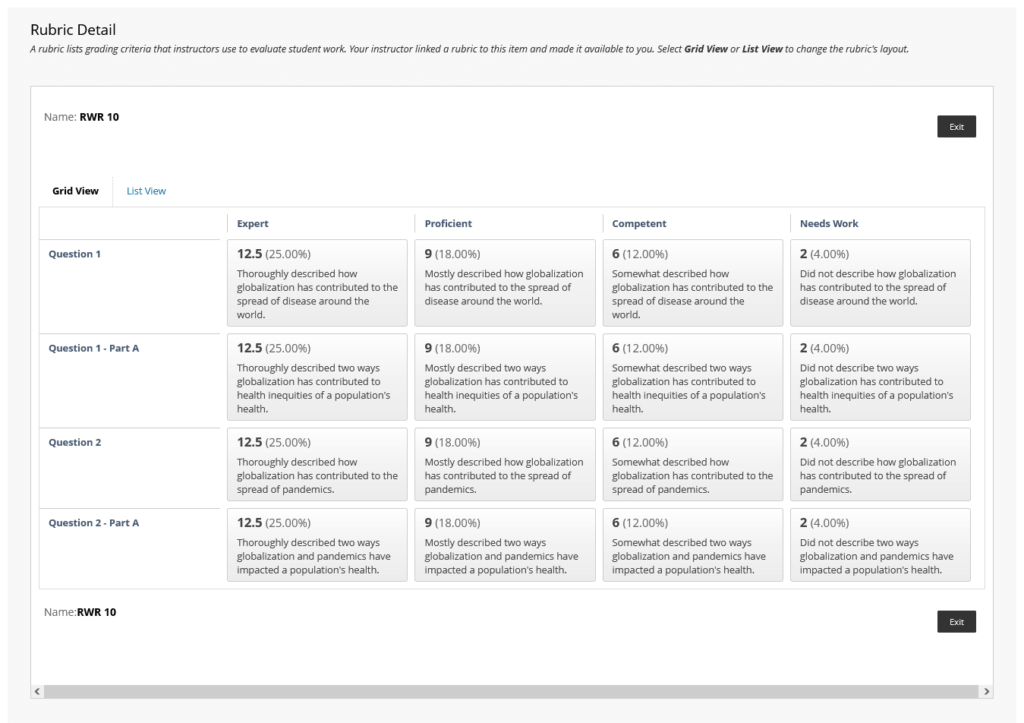Public Healthcare – Globalization
Globalization: “Globalization, or the increased interconnectedness and interdependence of peoples and countries, is generally understood to include two inter-related elements: the opening of international borders to increasingly fast flows of goods, services, finance, people and ideas; and the changes in institutions and policies at national and international levels that facilitate or promote such flows. Globalization has the potential for both positive and negative effects on development and health” (WHO, 2021).
Question: We discussed globalization a few times throughout this semester – in infectious disease (Chapter 10 – lectures week 5), COVID-19 (lectures week 5, podcast reading week 5 day 2), environmental health (Chapters 20-23 – lectures week 10), and population and health (Chapter 25 – lectures week 12).
Describe how globalization has contributed to the spread of disease around the world. Identify two ways globalization has contributed to health inequities of a population’s health. (Length: approximately 200 words)
Describe how globalization has contributed to the spread of pandemics (e.g., Avian Flu (H5N1), Swine Flu (H1N1), and COVID-19) around the world in recent history. Identify two ways globalization and pandemics have impacted health on a population level.

Answer
Public Healthcare – Globalization
By: Essayicons.com
Because of globalization, more people are traveling, which has led to the spread of illnesses to previously uninfected populations. It is relatively uncommon for a disease that local people have not previously encountered to spread across the community quickly.
Traveling has never been easier or more common than today, and disease-carrying pathogens are traveling with them. As the globe becomes more global, sickness is no longer limited to a single geographic location. One such instance is the prevalence of malaria. Malaria is currently prevalent in 40 percent of the worldwide people, up from 20 percent just two decades ago.
As a consequence of industrialization and globalization, environmental changes are occurring that impact human health. People are migrating between nations and between rural and urban regions, which helps spread various infectious illnesses throughout the world.
Capital inflows, or unpredictable transnational finance, are speculating on Developing World currencies and weakening their buying power due to globalization. Essential goods like foodstuffs, medications, and vaccinations are unavailable to Developing Countries because of the downfall of local currency. World Health Organization (WHO) Child’s Vaccines Initiatives (CVI) has shown that government finances are worsening as a result of speculation assaults and that “the reduction in funding to acquire immunizations are unavoidable, resulting to the discontinuation of essential vaccination programs” (WHO, 1998). Four million children die each year from infectious illnesses that available vaccinations may prevent. Still, these medicines remain inaccessible owing to economic globalization issues.
Globalization has resulted in a rise in worldwide employment. The Healthcare system has improved due to increased individuals’ level of life. Unemployed people do not have access to this benefit since they lack the financial resources to pay for their medical treatment. This creates a disparity between those who have jobs and those who don’t.
People now live and work differently because of globalization. As a result, the spreading of covid 19 has been attributed to commerce and immigration. Urban sprawl and worldwide economic convergence have also contributed to a more excellent global connectivity. Because of this, globalization has become a crucial means of transmitting covid 19.
The rise of globalization is primarily due to technical advancements, which have made it simpler for individuals to move by land, sea, and even aircraft from one place to another. A city or nation (B) with no diseases may readily be infected by persons who have been exposed to an illness such as COVID-19 in state or country (A) if sufficient medical precautions to avoid the spread to the population are not in a spot.
Globalization has resulted in a rise in pandemics due to the expansion of companies throughout the globe. Health care, food security, and the world of labor have been severely affected by the epidemic, which has claimed the lives of millions of people globally. Before the year’s end, the number of persons suffering from malnutrition is expected to rise by up to 134 million, putting millions of individuals in danger of sliding into severe poverty. The economic and social impact is catastrophic.
It is commonly accepted that human health results from the complex interplay between our surroundings, our societal, cultural, and organizational contexts. A multitude of factors, both directly and indirectly, impact health in terms of globalization. Risk of a pandemic or TB-resistant tuberculosis: The mobility of individuals implies that viruses are being transported. Health-related factors such as work, housing, education, access to clean water, and food production are all being impacted by globalization. Furthermore, the overall economic, social, and ecological situations are changing.